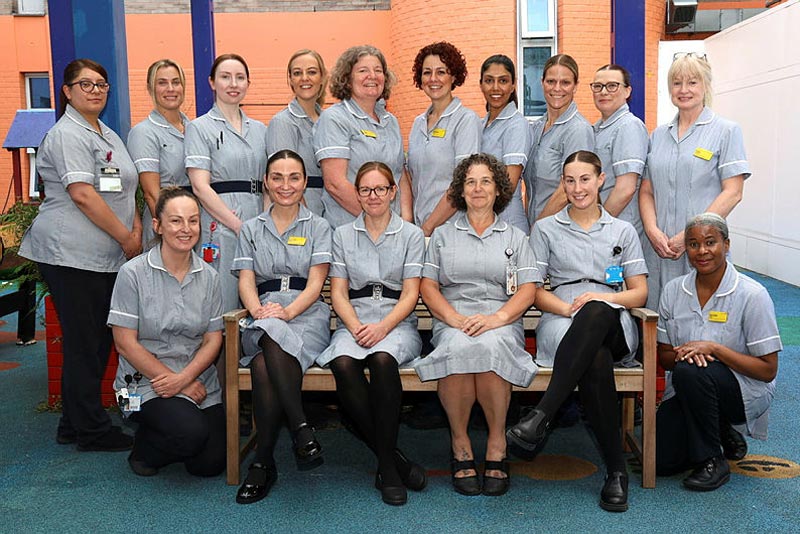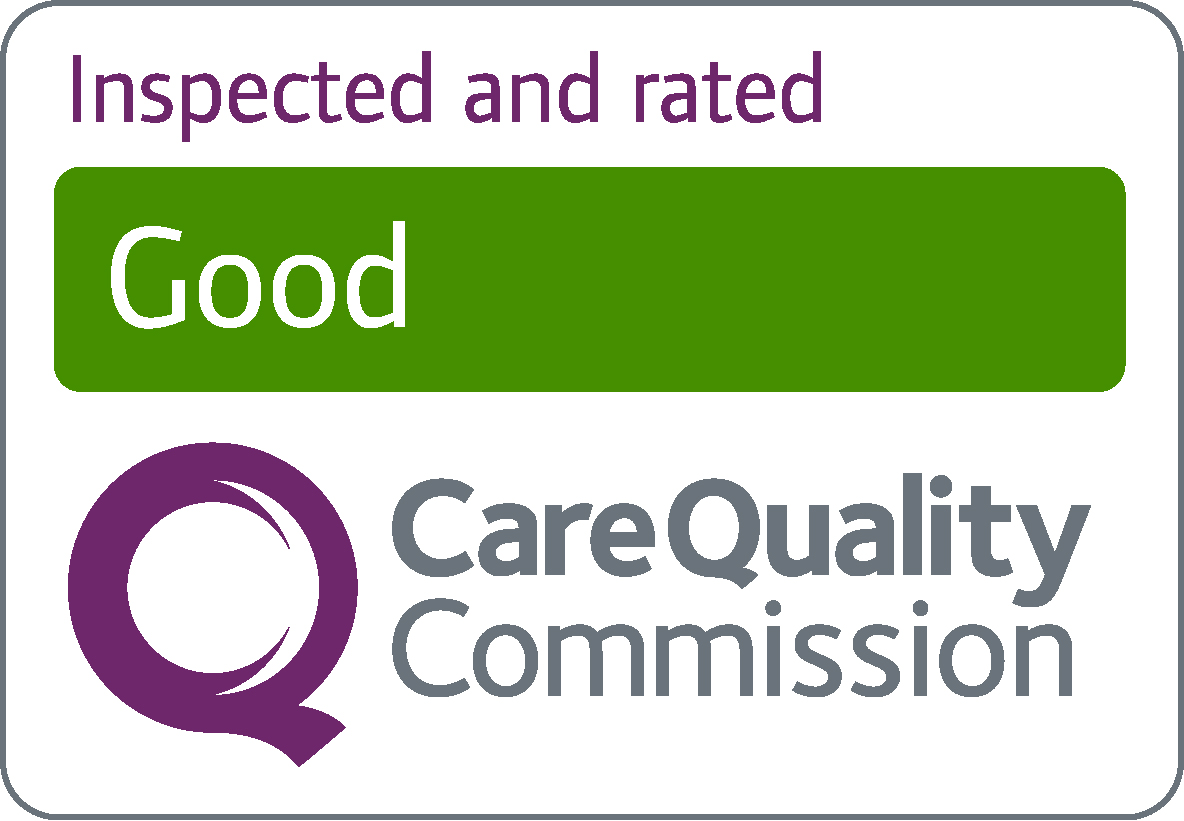Twenty-seven up – focus on our Clinical Nurse Specialists
Date of release: 19 July 2024
They care for more than 3,000 sick children across Wolverhampton, help prevent hospital admissions and have recently increased their team to 27.

Back row, from left (CNS specialty unless otherwise stated role): Bhrinder Kaur, (Epilepsy), Helen Park-Davies, (Diabetes), Rebecca Marray, (Respiratory), Fiona Wortley, (Epilepsy), Lesley Barrett, (Rheumatology), Rachael Trevitt, (Cystic Fibrosis), Jalpa Dodia, (Bladder and Bowel), Steph Friedl, (Oncology), Dawn Giles, Paediatric Palliative Care Nurse, Vicky Griffiths, Specialist Nurse for Child Death. Front row, from left: Catherine Lambden, (Haematology), Georgia Coley, (Respiratory), Rebecca Hewitt, (Transition), Nicky Vass and Abbie Duckmanton, (both Diabetes), Michelle Taylor (Dermatology)
Missing from photo: Emma Heath, (ADHD), Abbey Clark (ADHD/Autism Spectrum Disorder), Amanda Whitehouse, Paige Smith, Gail Higgins and Lucie Baugh (all Diabetes), Jess Rhead, Diabetes Team Leader, Lauren Bartlett (Respiratory) and Shaunna Parris (Endocrine), Nichola Hewitt (Cardiology) and Tracy Smith, (Haematology)
Dubbed “absolute oracles”, 27 Paediatric Clinical Nurse Specialists (CNSs) work across 14 specialties for The Royal Wolverhampton NHS Trust (RWT), based at New Cross Hospital or the nearby Gem Centre.
Their specialties are Diabetes, Epilepsy, Respiratory, Rheumatology, Cystic Fibrosis, Bladder and Bowel, Oncology, Dermatology, Haematology, ADHD/Autism Spectrum Disorder (ASD), Endocrine (glands which release hormones into the bloodstream), Transition, Palliative Care and Child Death.
Now there is a Trust-first CNS in Cardiology, Nikki Hewitt, and another Haematology CNS in Tracy Smith. That means this team will have doubled from 13 since Kirsty Lewis, Senior Matron for Children’s Services at RWT, started in January 2022.
More than 500 of those 3,000-plus children have epilepsy, while the fact eight are Diabetes CNSs is a reflection of the scale of that condition.
Mum of two Kirsty, from Shifnal, says the specialist skills and care the CNSs offer provide a vital service for young patients.
“Children are now living with more complex medical conditions than ever before and that’s a credit to medicine and advances in healthcare,” said Kirsty. “But with these come complexities and challenges in their childhood.
“These require sometimes daily input, and the importance of the CNS role is having that key person families can contact.
“They provide support with anything from prescriptions and medication, even delivering training to schools and families, as well as supporting with acceptance of a diagnosis.
“We are also able to offer more bespoke and much needed support to families at the end of a child’s life and beyond with support from our Palliative care nurse and child death nurse.
“They ensure safeguarding requirements are met, and they help with transition from child into adult services where patients are managing their own conditions.
“A number of CNSs have advanced qualifications, so they can prescribe drugs, make assessments of patients in the home, in a clinical environment or on the ward. The advanced skills they hold allow them to develop plans of care in conjunction with the patient and their families.
“They also liaise with other professionals, such as social care and education.
“The growing population of Wolverhampton means they have very big caseloads of patients who all have challenges and things they need support with.
“This is why the CNSs are the absolute oracles of what are sometimes lifelong conditions.”
Kirsty is convinced the CNSs are changing people’s lives for the better.
“I’m passionate that if we get healthcare right for children and young people, it will stand them in good stead as adults,” she added.
“They will thrive in their home environment, and in every aspect of life, and hopefully go on to live a full and happy life with families of their own.
“This support also means children are often kept out of hospital because they have got access to these very knowledgeable, very skilled Nurses who can often manage them in the home, away from infection.”
ENDS
- For further information, please call Tim Nash on 07714 741097 or email tim.nash2@nhs.net

